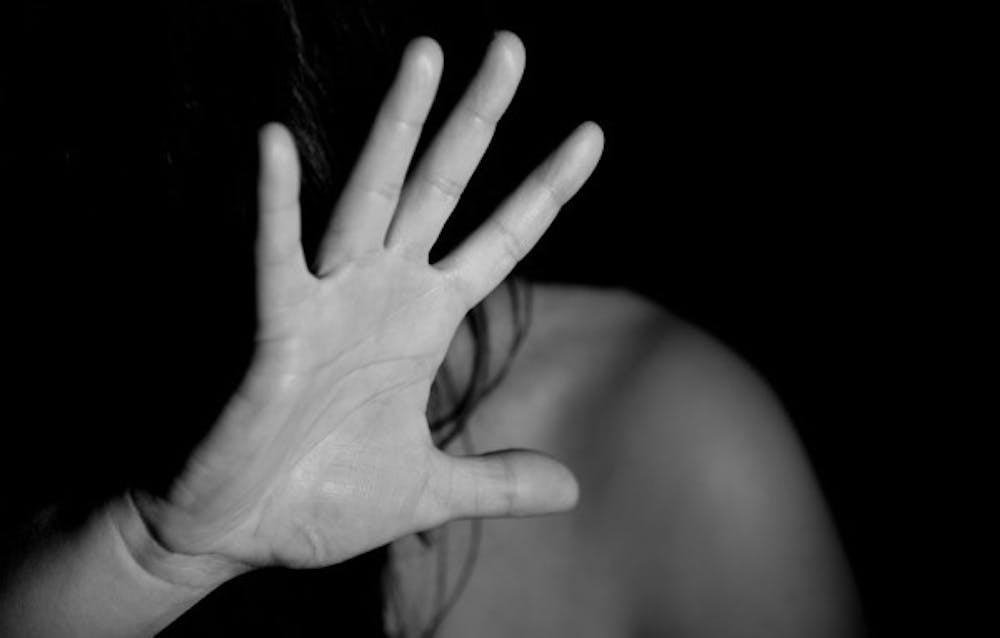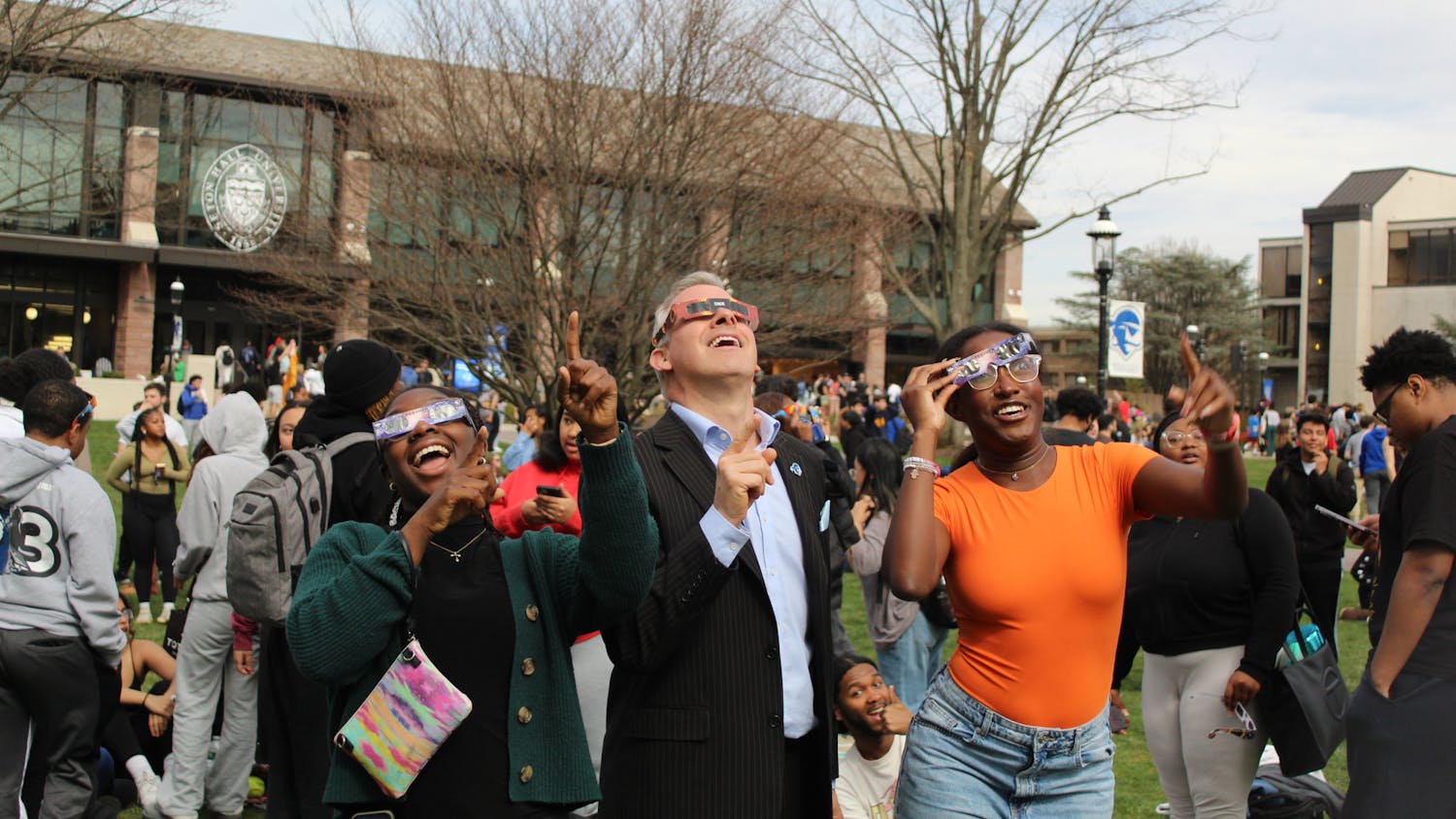About half of the Seton Hall community had the opportunity to learn basic self-defense techniques on Oct. 28 and 29 in a program called Rape Aggression Defense (RAD). The program was offered exclusively to female students.
According to Sergio Oliva, associate director of Public Safety and Security, the course is restricted to women only in an effort to create a sense of privacy and comfort for the participants.
[caption id="attachment_20541" align="alignnone" width="600"] Photo via Pixabay[/caption]
An email from Oliva to the SHU community explained that RAD is “a self-defense program designed to empower women by educating them about risk awareness, risk avoidance, risk recognition and risk reduction.”
Over 250,000 women across North America have participated in this program. But why is it especially important to train college-age women in self-defense?
According to the Rape, Abuse & Incest National Network (RAINN), women between the ages of 18 and 24 are three times as likely to be victims of sexual violence as women in other demographics.
“Among undergraduate students, 23.1 percent of females and 5.4 percent of males experience rape or sexual assault,” the RAINN website said.
RAINN also said that gender plays a role. While one out of six American women is the victim of attempted or completed rape within her lifetime, one out of 33 American men have experienced attempted or completed rape. Rape and sexual assault are more common against women, and women who attend college are statistically at an even higher risk.
Seton Hall started offering RAD courses in 2003 to provide women with options for self-defense, but some students believe that there is also a need for a RAD program for men.
Anthony Tokarz, a junior diplomacy and international relations and economics double major, said that while “it's best for women and men that the course is segregated by sex, since there's solidarity and comfort,” programs should be offered to men as well.
“A mandatory course could definitely reduce the incidence of such cases [of sexual assault and rape], even if just one or two fewer men or women get raped,” said Tokarz.
Oliva said that “most [sexual assault] cases involve women being victims of sexual assault,” adding that while he believes there is currently no demand for a self-defense program for men, the University will offer one if there is a need for it.
Freshman classical studies and philosophy major Sloane Nicoletti-Watson said about the program, “I would highly recommend all women to take RAD. It’s a fun, safe environment where they can learn how to keep themselves and their friends safe.”
Oliva explained in a phone interview that the program aims to teach basic self-defense and survival skills. Women in the program “won’t have to take years and years of training to protect themselves,” Oliva said.
While the women participating in RAD do not have to be black belts, Nicoletti-Watson had received prior martial arts training.
“I’ve had an extensive background in self-defense before I came to Seton Hall, so the RAD program was an interesting addition to that,” Nicoletti-Watson said.
Olivia believed that RAD is absolutely necessary at Seton Hall. According to the Seton Hall Annual Security and Fire Safety Report, published on Oct. 1, three rapes were reported on campus property in 2016. Over the past three years, twelve rapes have been reported on campus.
“The worst thing that could happen is to be in the mindset that ‘oh, it won’t ever happen to me, I’m perfectly safe,’ only to find yourself in a certain situation and not know how to defend yourself,” said Nicoletti-Watson.
Marie Leone can be reached at marie.leone@student.shu.edu
Photo via Pixabay[/caption]
An email from Oliva to the SHU community explained that RAD is “a self-defense program designed to empower women by educating them about risk awareness, risk avoidance, risk recognition and risk reduction.”
Over 250,000 women across North America have participated in this program. But why is it especially important to train college-age women in self-defense?
According to the Rape, Abuse & Incest National Network (RAINN), women between the ages of 18 and 24 are three times as likely to be victims of sexual violence as women in other demographics.
“Among undergraduate students, 23.1 percent of females and 5.4 percent of males experience rape or sexual assault,” the RAINN website said.
RAINN also said that gender plays a role. While one out of six American women is the victim of attempted or completed rape within her lifetime, one out of 33 American men have experienced attempted or completed rape. Rape and sexual assault are more common against women, and women who attend college are statistically at an even higher risk.
Seton Hall started offering RAD courses in 2003 to provide women with options for self-defense, but some students believe that there is also a need for a RAD program for men.
Anthony Tokarz, a junior diplomacy and international relations and economics double major, said that while “it's best for women and men that the course is segregated by sex, since there's solidarity and comfort,” programs should be offered to men as well.
“A mandatory course could definitely reduce the incidence of such cases [of sexual assault and rape], even if just one or two fewer men or women get raped,” said Tokarz.
Oliva said that “most [sexual assault] cases involve women being victims of sexual assault,” adding that while he believes there is currently no demand for a self-defense program for men, the University will offer one if there is a need for it.
Freshman classical studies and philosophy major Sloane Nicoletti-Watson said about the program, “I would highly recommend all women to take RAD. It’s a fun, safe environment where they can learn how to keep themselves and their friends safe.”
Oliva explained in a phone interview that the program aims to teach basic self-defense and survival skills. Women in the program “won’t have to take years and years of training to protect themselves,” Oliva said.
While the women participating in RAD do not have to be black belts, Nicoletti-Watson had received prior martial arts training.
“I’ve had an extensive background in self-defense before I came to Seton Hall, so the RAD program was an interesting addition to that,” Nicoletti-Watson said.
Olivia believed that RAD is absolutely necessary at Seton Hall. According to the Seton Hall Annual Security and Fire Safety Report, published on Oct. 1, three rapes were reported on campus property in 2016. Over the past three years, twelve rapes have been reported on campus.
“The worst thing that could happen is to be in the mindset that ‘oh, it won’t ever happen to me, I’m perfectly safe,’ only to find yourself in a certain situation and not know how to defend yourself,” said Nicoletti-Watson.
Marie Leone can be reached at marie.leone@student.shu.edu

Comments




